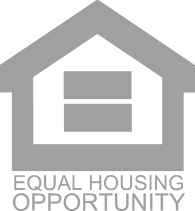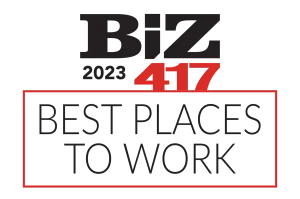
A Guide To Choosing the Best Mortgage For Your Property Investment

As you embark on the journey of homeownership, one of the most important decisions you’ll make is choosing the best mortgage. With so many types of mortgages available, it can be overwhelming to determine which one is the right fit for you. This guide will provide a comprehensive overview of the various mortgage types and factors to consider when choosing the best one for your needs.
And should you prefer personalized, expert advice on the best financing options for your next real estate investment, talk to our REI News team. Our experts specialize in matching investors with lenders that cater to the investor’s exact needs.
Understanding Mortgage Types
Fixed-Rate Mortgages
A fixed-rate mortgage is a mortgage with an interest rate that remains the same throughout the life of the loan. This type of mortgage offers stability and predictability in monthly payments, making it a popular option for those who prefer a consistent budget. The most common terms for fixed-rate mortgages are 30, 20, and 15 years.
Pros:
- The interest rate stays the same throughout the life of the loan, which can make it easier to budget and plan for payments.
- Predictable payments can provide peace of mind and financial stability.
- Fixed-rate mortgages are available in a variety of terms, from 10 to 30 years, which can help borrowers find a payment schedule that works for them.
Cons:
- Fixed-rate mortgages may have higher interest rates than adjustable-rate mortgages, which can result in higher monthly payments.
- Refinancing may be necessary to take advantage of lower interest rates in the future.
- Longer terms may result in paying more in interest over the life of the loan.
Adjustable-Rate Mortgages
An adjustable-rate mortgage, or ARM, is a mortgage with an interest rate that can change over time. The initial interest rate is typically lower than that of a fixed-rate mortgage, but it can increase or decrease depending on market conditions. ARMs typically have an initial fixed-rate period, after which the interest rate can adjust annually or every few years.
Pros:
- Adjustable-rate mortgages (ARMs) typically offer lower interest rates than fixed-rate mortgages, which can result in lower monthly payments.
- Some ARMs have a fixed-rate period at the beginning of the loan, which can provide initial stability.
- ARMs may be a good option for borrowers who plan to sell their home or refinance before the interest rate adjusts.
Cons:
- The interest rate on an ARM can change over time, which can result in higher monthly payments.
- The rate changes are often tied to market conditions, which can be unpredictable.
- The potential for higher payments can make it difficult to budget and plan for payments.
FHA Loans
An FHA loan is a mortgage insured by the Federal Housing Administration. These loans are designed for borrowers with lower credit scores or who cannot afford a large down payment. FHA loans have more relaxed credit and income requirements and require a lower down payment than traditional mortgages.
Pros:
- FHA loans require a lower down payment than many other types of mortgages, making homeownership more accessible for some borrowers.
- The credit score requirements for FHA loans are typically lower than for conventional loans, which can make it easier for borrowers with less-than-perfect credit to qualify.
- FHA loans may offer lower interest rates than other types of loans.
Cons:
- FHA loans require mortgage insurance, which can add to the cost of the loan.
- The amount of the loan may be limited in some areas.
- FHA loans may have stricter property standards than conventional loans, which can limit the types of homes that qualify.
Get In Touch With The Real Estate Investor News Team If You Want To Know More About Buying And Financing Investment Properties
VA Loans
A VA loan is a mortgage guaranteed by the Department of Veterans Affairs. These loans are designed for military service members, veterans, and eligible surviving spouses. VA loans have low or no down payment requirements and do not require private mortgage insurance (PMI).
Pros:
- VA loans are available to eligible veterans and their families and require no down payment.
- VA loans typically have lower interest rates than conventional loans.
- VA loans do not require mortgage insurance.
Cons:
- VA loans are only available to eligible veterans and their families.
- VA loans may have stricter property standards than conventional loans, which can limit the types of homes that qualify.
- VA loans may have higher upfront fees than other types of loans.
- In summary, each type of mortgage has its pros and cons, and it’s important to carefully consider your options before choosing a mortgage. A good lender can help you understand the details of each type of loan and find the best fit for your needs.
Factors to Consider When Choosing a Mortgage
-
Interest Rates
One of the most critical factors to consider when choosing a mortgage is the interest rate. The interest rate affects the total cost of the loan and the monthly payment. It’s essential to shop around and compare rates from various lenders to ensure you’re getting the best rate possible.
-
Loan Term
The loan term refers to the length of time you have to pay off the mortgage. A shorter loan term typically results in a higher monthly payment but a lower total cost over the life of the loan. Conversely, a longer loan term results in a lower monthly payment but a higher total cost over the life of the loan.
-
Down Payment
The down payment is the upfront payment you make towards the purchase of the home. A larger down payment results in a lower monthly payment and can help you qualify for a lower interest rate. However, a smaller down payment may be necessary for those who cannot afford a large down payment or who prefer to keep more cash on hand.
-
Closing Costs
Closing costs are fees associated with the purchase of a home and are typically 2-5% of the purchase price. These costs include appraisal fees, title fees, and attorney fees. Some lenders offer “no-closing-cost” mortgages, but these typically result in a higher interest rate.
-
Loan Fees
In addition to the interest rate, it’s important to consider the fees associated with the loan. These fees can include loan origination fees, application fees, and processing fees. Some lenders may offer lower interest rates but charge higher fees, so it’s essential to compare the total cost of the loan, including fees.
-
Credit Score
Your credit score can have a significant impact on the interest rate and terms of your mortgage. A higher credit score can result in a lower interest rate, while a lower credit score may result in a higher interest rate or difficulty qualifying for a loan. It’s important to check your credit score before applying for a mortgage and work to improve it if necessary.
-
Mortgage Insurance
Mortgage insurance is typically required if you have a down payment of less than 20% of the home’s purchase price. This insurance protects the lender in case you default on the loan. Mortgage insurance can add to the cost of the loan, so it’s important to factor it into your budget.
-
Prepayment Penalties
Some lenders may charge prepayment penalties if you pay off your mortgage early or make extra payments toward the principal. Prepayment penalties can add significant costs to the loan, so it’s important to ask about them before choosing a lender.
-
Lender Reputation
It’s important to choose a reputable lender with a history of good customer service and fair lending practices. You can research lenders online and check their ratings with organizations such as the Better Business Bureau.
Conclusion
Choosing the best mortgage can seem like a daunting task, but understanding the various types of mortgages and the factors to consider can make the process less overwhelming. By comparing interest rates, loan terms, down payment requirements, and closing costs, you can make an informed decision about which mortgage is right for you. Remember to shop around and ask questions to ensure you’re getting the best possible mortgage for your needs.
If you want to take the guess (and leg) work out of picking the right mortgage then simply contact the team at REI News. We are experts in pairing investors with affordable, reliable lenders so get a head start on your next investment financing with us today!
Let Us Help You Boost Your Real Estate Projects!
Share your real estate investment projects with us and one of our team members will contact you with the right funding solution.




 Previous Post
Previous Post Next Post
Next Post






